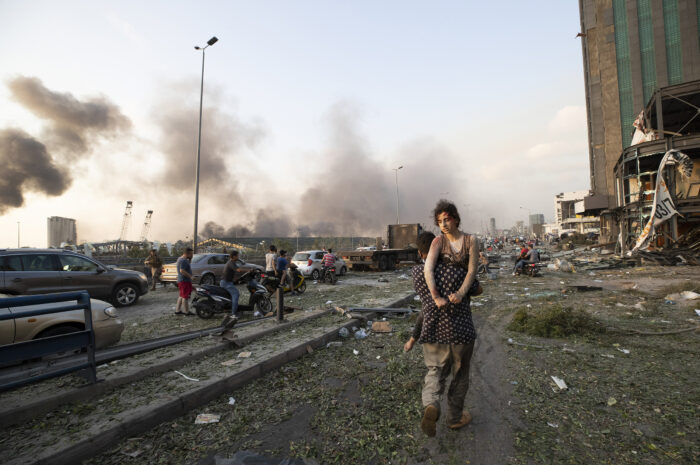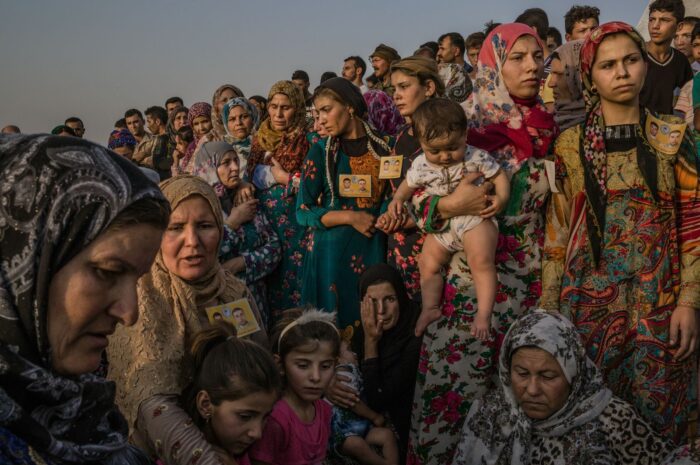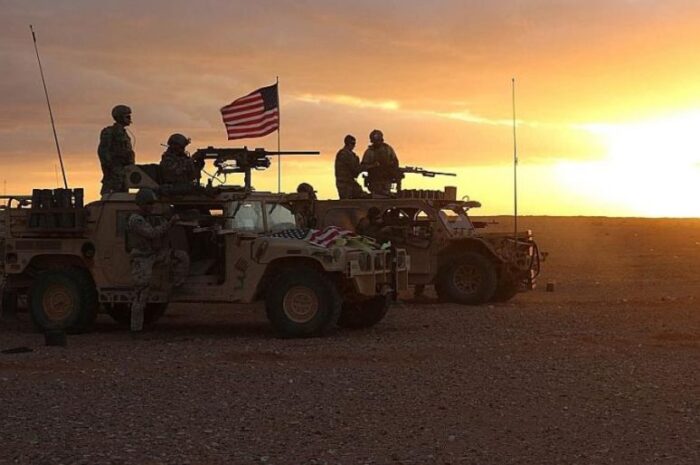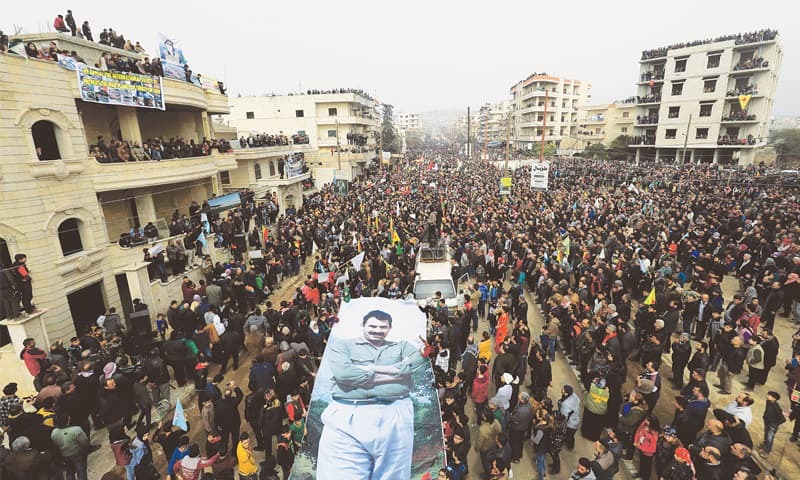
The following article was originally published in The Region.
Editors note:
It has been 41 days since attacks by Turkey on Afrin began. Anthony Avice Du Buisson provides you with an updated primer on the latest updates of the attack. He also discusses the role of the International community in bringing the Afrin crisis to an end.
What are the latest updates on the situation in Afrin?
Turkish attack helicopters (TuAF) have been conducting aerial bombardments on the town of Jinderis in Syria’s Afrin region, for the last couple days. Artillery barrages assist in the bombardments, as fighters of the ‘People’s Protection Units’ (YPG) scramble to repel the attack on the town. Jinderis is just a recent addition to the many towns being targeted by Turkish security forces (TSK), assisted by Islamists of the Turkish-backed Free Syrian Army (TFSA), since the launch of Operation Olive Branch (the Afrin offensive) in late January.
Since its inception, the Afrin offensive has claimed the lives of nearly three hundred and fifty civilians (Kurdish Red Crescent estimate). Met with fierce resistance by the people of Afrin, TSK and TFSA have found it difficult to advance deep into the region. What was expected by Ankara to be a quick operation has turned into a gruelling and lengthy exercise. Despite the superior technology, numbers and firepower of the Turkish military, the YPG and its allies are putting up strong opposition, where they hold the advantage of familiarity with the mountainous terrain.
In Turkey, president Recep Tayyip Erdogan has whipped the country into a frenzy, as State news media pumps out propaganda in support of the offensive, while police and other state organisations eliminate dissent. (Anadolu Agency, a state media outlet, exaggerates the numbers of kills Olive Branch forces have made. The current number is over two thousand, at the time of writing.) Any show of public disapproval or critique towards the operation runs the risk of state crackdown, as journalists, politicians, academics and so on, are arrested without question. Further highlighting Turkey’s descent into authoritarianism.
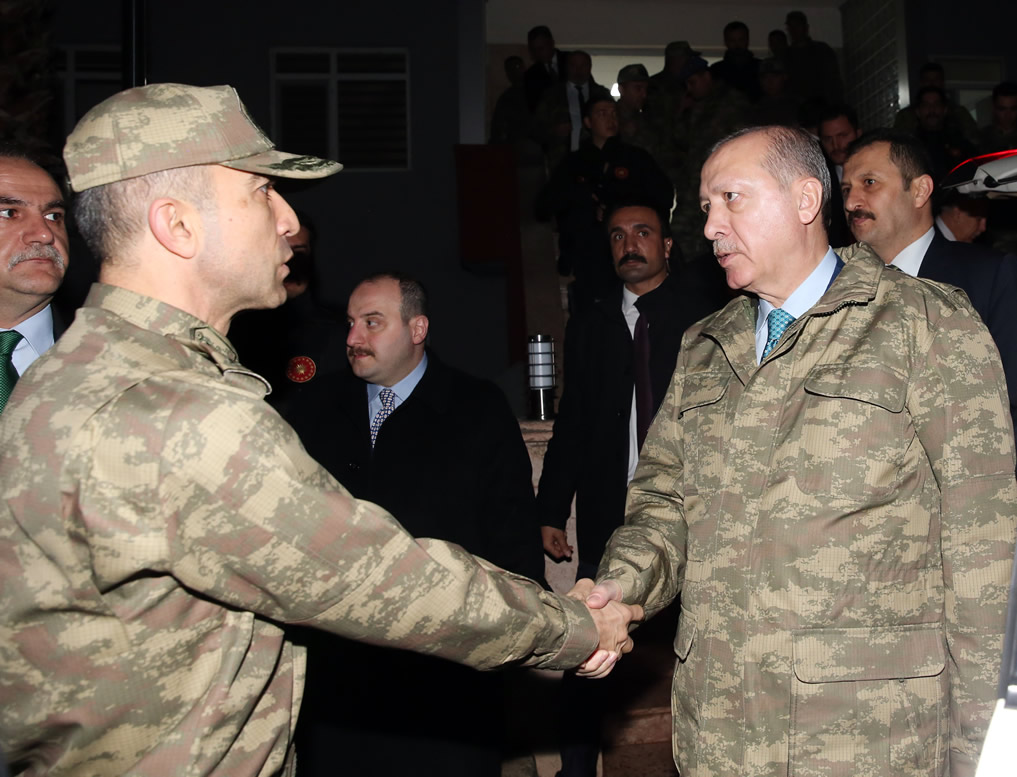
Source: PTTR.
Turkey claims to be fighting against “Terrorists” in Afrin, is the international community convinced?
Despite the Turkish state’s effort to impose a positive narrative of the operation upon its own people, it has had a difficult time convincing the world that the Afrin offensive is justified. Ankara may claim that it is waging a war to cleanse its borders of ‘terrorists’ and help relocate its refugee population, however, the forces that it commands demonstrate another more sinister intent.
Videos have surfaced online of TFSA and TSK forces committing atrocities, from the brutal interrogation of an Afrin farmer to the mutilation of a ‘Women’s Protection Unit’ (YPJ) fighter. All these videos, as well as Erdogan’s rhetoric on Turkish state media, portray the Turkish forces as conquerors, as opposed to ‘liberators’. (A recent video of a farmer being executed by TFSA fighters is another example of the brutality of the Olive branch forces.) Erdogan’s rhetoric also has been suggestive of a possible intent for ‘ethnic cleansing’ Afrin and ‘annexing’ the territory to expand Turkey’s border.
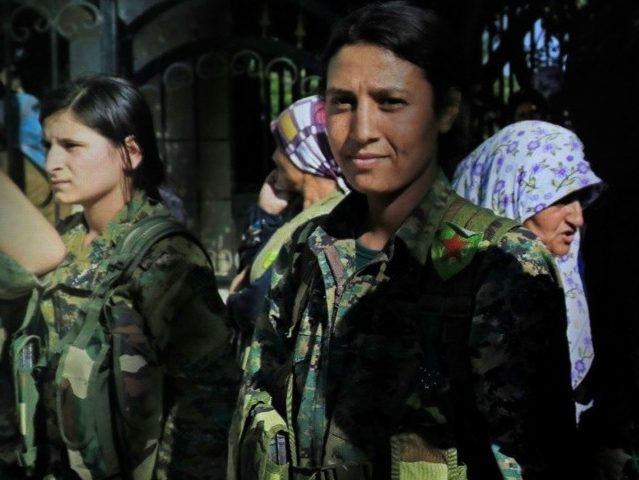
Source: ABNA.
So how has the world responding to the Afrin offensive? And who is to blame for sanctioning it?
While Erdogan has gotten the Turkish public to largely support the Afrin offensive, the response of the international public has been quite different. Public demonstrations have been held in major cities across the globe in solidarity with the people of Afrin. Protests have erupted all over the world against the offensive, whether it be on the streets of Cologne, Germany or outside the parliament in Canberra, Australia – people everywhere across the globe have been condemning the offensive.
The condemnations have not only been directed at the Turkish state but also at Western states for failing to intervene to halt an offensive against a force that fought ISIS. Supporters of the people of Afrin point towards the use of German tanks, British jets and other EU supplied equipment and armaments by the Turkish military, as a sign of complicit support for the offensive by Western states. Parliamentarians in the German and British governments, especially from the Labour party and German Left Party (Die Linke) have raised concerns over Turkey’s war, calling it ‘illegal’ and ‘unjustified’.
Despite the US not having an active military presence in the Afrin region and thus no military intelligence on the ground, Afrin supporters including those from the US see it as a complicit actor that has enabled Turkey. The US State Department has voiced concerns over Turkey’s Afrin operation, calling it a ‘distraction’ from the fight against ISIS. A rather neutral position that the US continues to maintain, due to the increasing weakening of US-Turkey bilateral relations. (Tillerson recently visited Ankara, unaccompanied by any translators, to try repair relations between the states. Confusion still surrounds the details of that over three-hour long conversation.)
International organisations are being lobbied by Turkish officials to end support for the ‘Democratic Union Party’ (PYD), as well as other members of the ‘Movement for a Democratic Party’ (TEV-DEM) who currently govern the ‘Democratic Federation of Northern Syria’ (DFNS), to cripple international support for YPG. Turkey even went as far as to attempt to extradite former PYD co-chair, Salih Muslim, while he was in the Czech Republic. An attempt that ended more in embarrassment for Turkey than anything else.
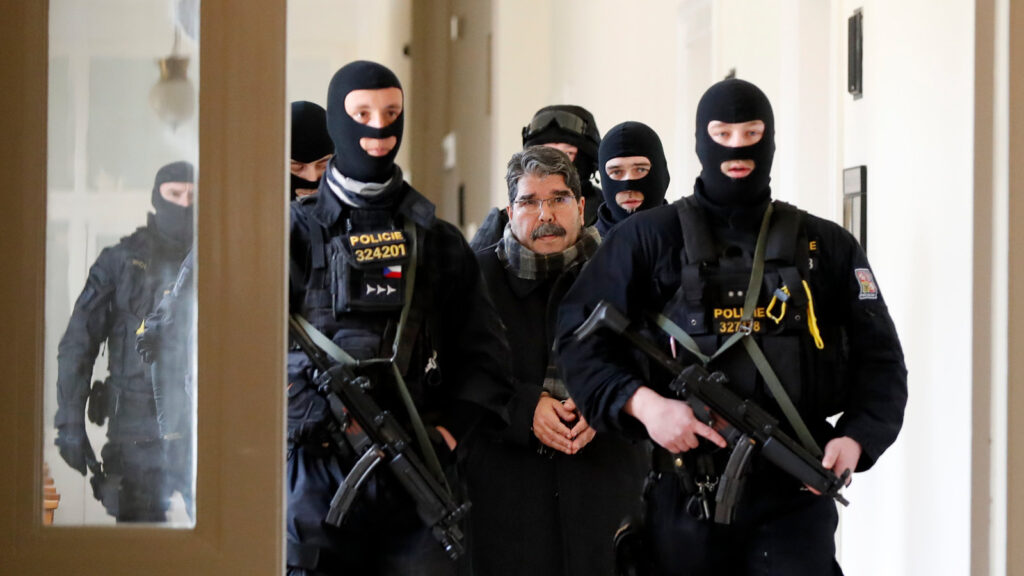
Source: NYT.
Recently, Afrin authorities called for help from Damascus, why?
On the ground, Afrin Authorities have called for international solidarity in general, but to little avail. While Convoys are coming from all parts of Northern Syria to defend Afrin, crossing through Syrian Government controlled territory in Aleppo to reach the cities in the region that are being attacked, this has not been enough. Due to the need to use such territory, dialogue channels between Afrin Authorities and the Syrian government have been increasingly used. Given the precarious situation of the canton and the lack of international military intervention, authorities in Afrin have exercised the right of autonomy of the canton to find alternatives to deal with the crisis. (Each canton in the DFNS is autonomous, as the current ideology of the system is democratic confederalism.)
Negotiations over pro-Syrian government [Iranian-backed] troop placement along Afrin’s borders have been made, as popular forces of the National Defence Force (NDF) have deployed to Afrin’s southern border. However, the nature and extent of these negotiations have yet to be fully disclosed, as negotiations are ongoing and the forces that are currently in Afrin are limited in number (a few hundred) and not assisted by Syrian air force (SyAAF). TuAF targeted convoys of NDF entering Afrin, killing many, which demonstrated the ineffectiveness of these units.
These negotiations have been opposed by Russian authorities, as well as questioned by TFSA supporters and some MENA analysts. Initially, it was Russia who gave the green-light for Turkey’s Afrin operation, after Afrin authorities refused to accept the ultimatum Russia posed:
“Either Turkey will attack you and occupy Afrin or the regime will come and enter Afrin.”
– Shahoz Hassan, said PYD co-chair on the Russian proposal.
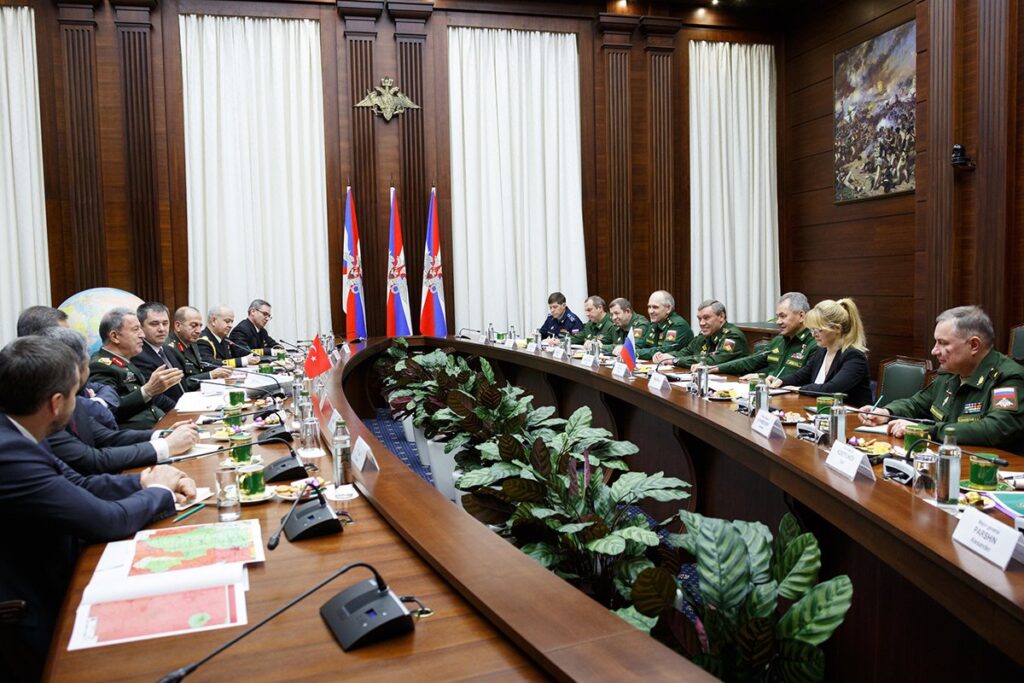
Source: RMOD.
What exactly is the role of Russia in the Afrin offensive by Turkey?
Russia allowed Turkey to use the airspace that it controlled in Afrin in exchange for parts of Idlib – a province to the south of Afrin in Syria that is currently dominated by Al-Qaeda linked Hay’at Tahrir al-Sham (HTS). Russia wants Afrin to return under the government control, as was the case prior to the uprisings in 2011. (Russia would rather see a battered and weak YPG that is forced to accept all of its demands, rather than one that is able to stand.)
However, even though Russia is playing a thuggish devil’s game, Afrin authorities insist that should they be forced to play this game, then the terms must be negotiated as much as possible in Afrin’s favour. I have mentioned previously that there is a limited troop presence of pro-Government forces. This is important to note, as some MENA analysts and TFSA supporters are jumping the gun already and proclaiming that YPG has ‘sold out to the oppressive government’. (A claim that is not true, but one that, regardless, should be avoided by Afrin Authorities.)
Afrin is in a precarious situation now, as it is being attacked by a NATO country that is determined to deny its autonomy and impose a system of authority that runs counter to the system currently in place. Employing Islamist mercenaries as cannon fodder to fight on its behalf, while justifying these fighters’ acts with fatwas and proclamations in support of waging a war of ‘jihad’ against the Kurds, Erdogan is willing to stoop to any level to capture Afrin and ensure the longevity of his political career.
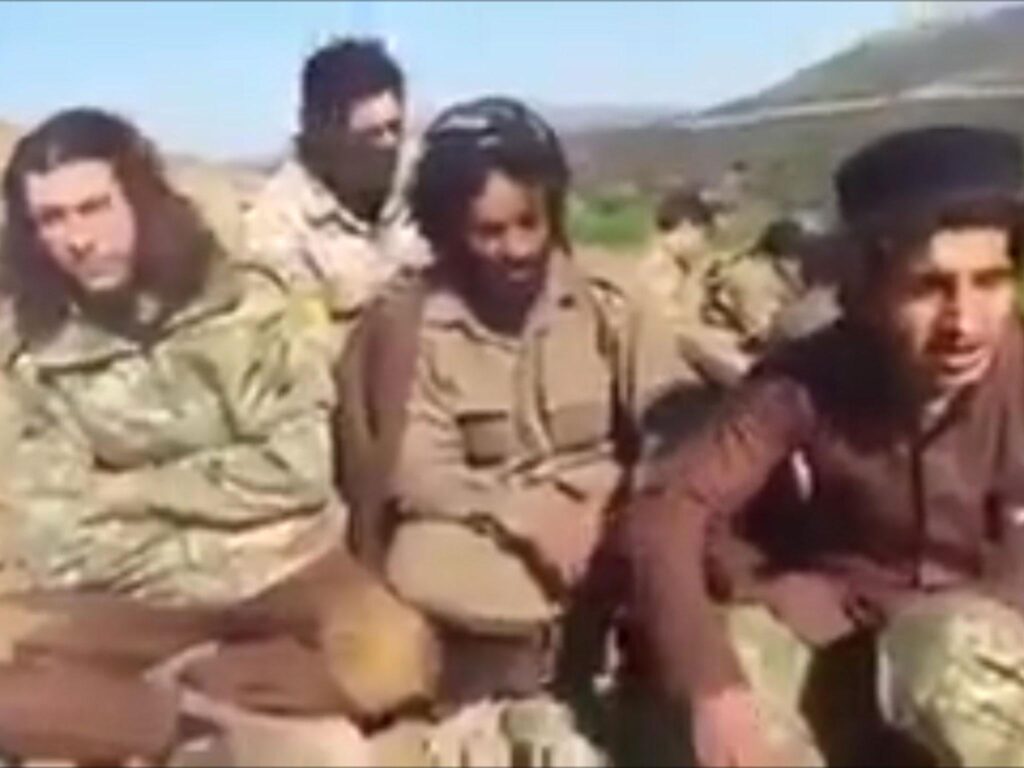
Source: Independent.
What has the United Nations done, and what should be done next for the people of Afrin?
The United Nations Security Council (UNSC) recently voted to adopt a resolution in support of a thirty-day ceasefire over Syria. A resolution that was unanimously passed and one that has already been violated by Russia, Iran and Turkey – the so-called ‘guarantors’ of peace in the Syrian conflict. In the resolution, it mentions that humanitarian aid is to be allowed into areas of conflict, such as eastern Ghouta. Although it does not mention Afrin by name, nonetheless the resolution – as was confirmed by US State Department spokesperson, Heather Nauert – extends to Afrin. Meaning that Turkey is required to follow through, as are all parties in Syria, to this ceasefire.
The very fact that Turkey was one of the main entities calling for a ceasefire in eastern Ghouta, but continues to attack Afrin, should highlight the level of hypocrisy on display by the Turkish state. Although a lack of agreement to the ceasefire by some parties is not surprising, given the history of resolutions over Syria, it should be concerning for all how little power the UNSC has to stop parties from violating the ceasefire. Those who suffer the most are the people of Syria, who simply demand to live in peace and security. A simple request that has yet to be delivered.
The people of Afrin are continuing to resist Turkish occupation, despite the inaction of those that claim to be allies. Even though the world focuses on the tragedies unfolding in eastern Ghouta, which are concerning and should not be ignored, focus should also be concerned with those in Afrin. Civilians are being forced to hide in caves to escape Turkish bombardments, while children are denied access to education due to the destruction of their schools. The death count rises with each passing week and the only way this can stop is for pressure to be applied to Turkey, as well as humanitarian aid delivered to those in need. I would even go so far as to argue for humanitarian intervention by UNSC and sanctions to be imposed on Turkey, but whether this would do anything is another question. What is clear is that a devil’s game is being played in Syria. And all suffer.
Written by Anthony Avice Du Buisson (02/03/2018).

